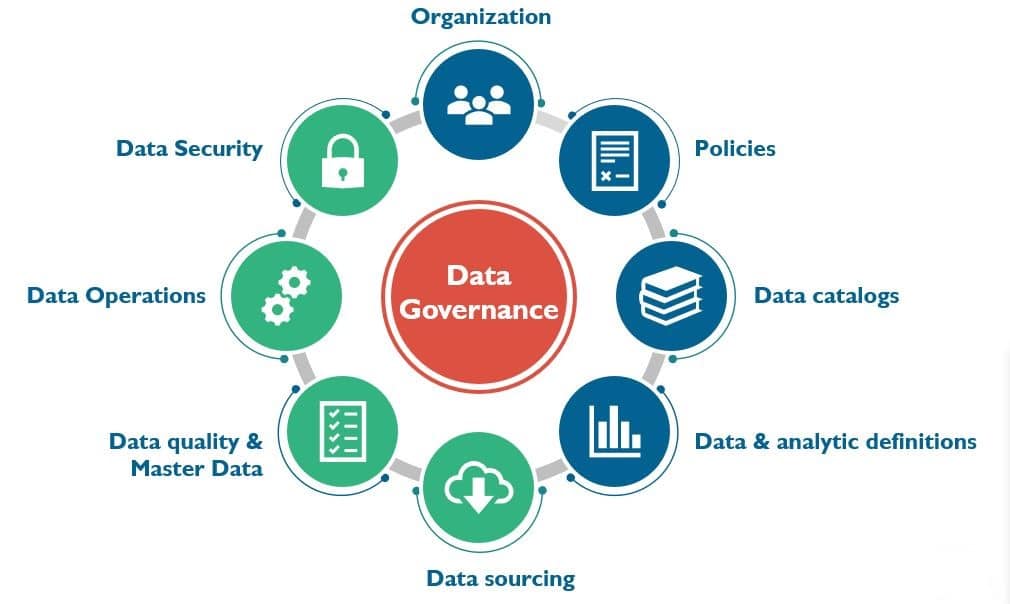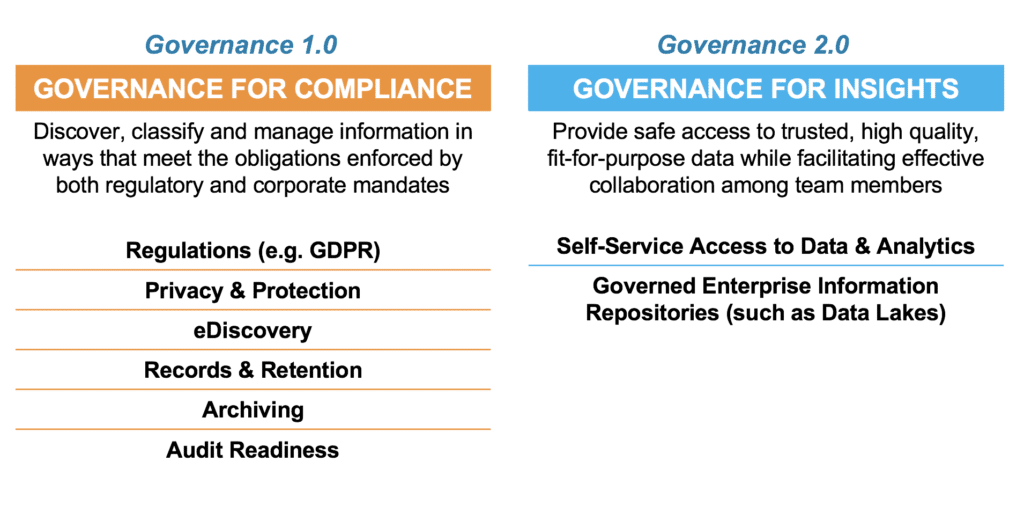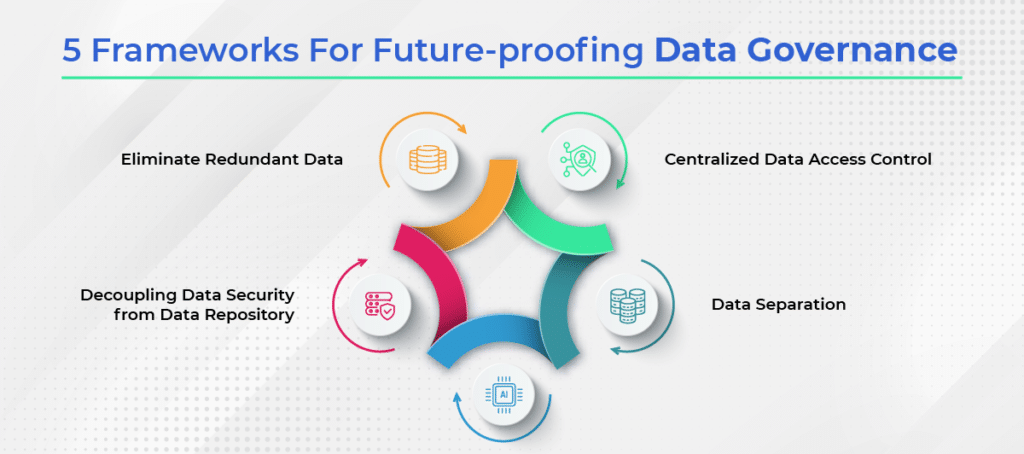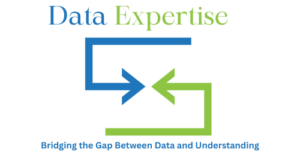Introduction to Data Governance Beyond Frameworks
Data governance transcends traditional frameworks, evolving into a dynamic practice that’s crucial for organizational success in the digital age. This blog explores how organizations are applying effective data governance principles in action, moving beyond theoretical models to practical, impactful applications.
Data governance is no longer just about compliance and managing risks; it’s increasingly about gaining a competitive advantage and enabling a data-driven culture within organizations. It’s about actionable insights, strategic decision-making, and fostering trust in data across all levels of an organization.

The Evolution of Data Governance in the Digital Era
As data becomes increasingly central to business operations, the scope and importance of effective data governance have expanded. This section delves into how data governance has evolved to meet the demands of the digital era, emphasizing its growing significance in driving business value.
The digital era has catalyzed the transformation of data governance from a back-office function to a boardroom imperative. This evolution is driven by the explosion of data, the advent of new technologies, and the increasing emphasis on data as a strategic asset.
- Increased Data Volumes: The sheer scale of data generated today.
- Technological Advancements: How new tools and platforms are shaping data governance.
- Strategic Asset Recognition: Viewing data as a core strategic asset.

Case Studies: Data Governance in Action
Practical applications of effective data governance demonstrate its value in real-world settings, showing how theory translates into actionable benefits that can drive organizational success.
Major Retail Chain
How a leading retail chain implemented a robust data governance strategy to enhance customer experiences and operational efficiency. A major retail chain leveraged effective data governance to unify its customer data across multiple channels, resulting in enhanced customer insights and personalized marketing strategies. The initiative not only improved customer satisfaction but also drove significant revenue growth.
In another initiative, the same retail chain applied data governance to streamline its supply chain operations. By ensuring high-quality, consistent data, they were able to optimize inventory levels, reduce waste, and improve operational efficiency.
Healthcare Provider
The transformation of data governance in a healthcare provider setting leads to improved patient care and compliance with regulatory standards. A healthcare provider implemented effective data governance to improve patient care by ensuring that medical professionals had access to accurate, up-to-date patient information. This led to better treatment decisions and improved patient outcomes.
Furthermore, the provider utilized data governance to enhance its research initiatives. By ensuring the integrity and accessibility of research data, they were able to accelerate discoveries and innovations in patient care.
The Role of Niche Analytics in Data Governance
Niche analytics plays a pivotal role in modern data governance, offering specialized insights that guide decision-making and policy development. This section explores how niche analytics contributes to effective data governance, enhancing data quality, security, and utilization.
- Targeted Insights: Providing specific insights for targeted improvements.
- Enhanced Decision-Making: Informing strategic decisions with precise data.
- Improved Data Quality: Pinpointing and addressing data quality issues.
Niche analytics enhances data governance by providing deep insights into specific aspects of the organization’s data, allowing for more targeted and effective governance strategies.
Implementing Effective Data Governance Strategies

Practical strategies and best practices for implementing effective data governance are crucial for any organization. This part provides actionable insights on how to operationalize data governance, ensuring it delivers tangible benefits.
Effective data governance requires a strategic approach that aligns with organizational objectives and leverages technology to automate and enhance governance processes. It’s about establishing clear policies, ensuring stakeholder engagement, and continuously monitoring and improving data governance practices.
- Stakeholder Engagement: Involving all relevant stakeholders in the governance process.
- Policy Development: Establishing clear data governance policies.
- Technology Utilization: Leveraging technology to enhance data governance.
Data Governance Challenges and Solutions
No data governance initiative is without its challenges. This section discusses common obstacles organizations face in data governance and presents solutions that have proven effective in overcoming these hurdles.
While effective data governance is essential, it comes with its set of challenges, such as data silos, compliance complexities, and change management. Addressing these challenges requires a combination of strategic planning, technology, and organizational change management.
- Data Silos: Breaking down data silos to ensure a unified approach.
- Compliance Complexities: Navigating the complex landscape of compliance requirements.
- Change Management: Managing organizational change to foster a data governance culture.
Ethical and Regulatory Considerations in Data Governance
Ethical and regulatory considerations are at the heart of data governance. This section highlights the importance of ethics and compliance in data governance, illustrating how organizations can uphold high standards.
Ethics and compliance are foundational to effective data governance. Organizations must navigate these considerations carefully to maintain trust and comply with regulatory requirements.
- Privacy: Ensuring the privacy of personal and sensitive data.
- Transparency: Maintaining transparency in data processing and usage.
- Accountability: Establishing clear accountability for data practices.
- Integrity: Ensuring the integrity and accuracy of data.
- Compliance: Adhering to all relevant laws and regulations.
Future Trends in Data Governance
What does the future hold for data governance? This part explores upcoming trends and innovations that are set to shape the future of data governance, emphasizing the role of technology and changing regulatory landscapes.
The future of data governance will be shaped by advancements in AI, increased regulatory requirements, and the growing importance of data ethics. Organizations will need to adapt to these changes to ensure effective governance in the dynamic data landscape.
- AI Integration: Utilizing AI to enhance data governance processes.
- Regulatory Evolution: Adapting to evolving regulatory requirements.
- Ethics Focus: Increasing focus on the ethical aspects of data governance.
Conclusion
Data governance is an essential, evolving discipline that extends beyond frameworks to become a key driver of organizational success. This blog has highlighted the importance of practical, actionable data governance and the role of niche analytics in enhancing governance practices.
Data governance is an essential, evolving discipline that extends beyond traditional frameworks to become a strategic imperative in the digital era. By embracing advanced governance strategies and adapting to emerging trends, organizations can ensure the integrity, security, and value of their data, paving the way for informed decision-making and sustainable growth.



